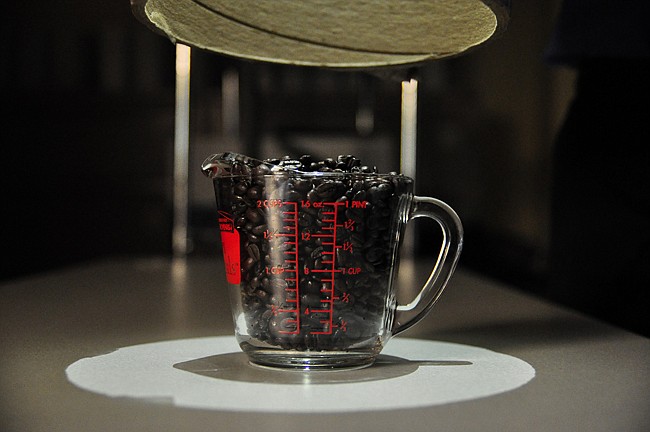- April 22, 2024
-
-
Loading

Loading

The students, each in crisp white lab coats and protective goggles, wear a look of intense concentration as they conduct experiments on a tiny piece of their own DNA. They’re surrounded by high-tech equipment, on the lab’s cool black countertop sits a sculpture of a DNA strand – a colorful twist of polka-dots – and in their hands are the scientific tools needed to extract data from their own.
“You really felt like a scientist,” said Gizelle Gonzalez, 17, a senior at Wekiva High School. “It made me appreciate science a lot more. I knew I liked science, but this really kind of opened my eyes to what it would be like to be in a real lab.”
Gizelle and nine other Central Florida high school students spent a week this summer in a Rollins College lab after an advanced five-week class in anatomy and physiology. The students participated as part of the Upward Bound program, which helps prepare students for college who are either from low-income families or are the first generation of their family headed to college to attain a four-year degree. Many times they fit both criteria. The national program more than doubles the chances that these students will graduate.
“They help you kind of branch out and open up your mind to different opportunities that are out there for you,” Gizelle said. “They really help open up your eyes and put what your dreams and your goals, they help you reach those and put them in front of you, you just have to be willing to do the footwork to get there.”
Dr. Susan Walsh, an assistant professor of biology at Rollins, led the class in their experiments, which were made possible by a COMPASS Outreach grant she received from American Society for Cell Biology. She not only hopes this program keeps the teens interested in college, but encourages those who have an existing passion for science.
“Those who hope to continue in science get more excited and get their hands dirty,” she said. “It’s that exploration.”
The students were taught how to isolate and test a piece of their DNA that research has shown is an indicator for how a person metabolizes caffeine. The gene, CYP1A2, decides if a person is a fast or slow processor of caffeine. If you’re fast, caffeine doesn’t affect you very much, if you’re slow, a cup of coffee could really ruin a night’s sleep, Walsh said.
“It would have some reflection to behavior, so a lot of us know that if we drink a cup of coffee before bed are we going to sleep or not, and so that can give you some indication as to whether you think you might be a fast or slow metabolizer,” Walsh said. “So people who are fast, like myself, can drink coffee and then fall right to sleep, but people who are slow are going to be up all night long.”
To conduct the experiment, the students first gargled a mouthful of salt water solution for a minute, spit it into a test tube and placed it into a centrifuge so that it could begin to spin their DNA out of the solution. Then they were left with a creamy clump of their DNA, flung to the bottom of the tube by the centrifuge forces. There were more steps: a detergent was added to multiply and magnify the microscopic piece of DNA extracted, blue dye was added and the DNA was placed into a gel, an enzyme extract was the last step to see if the one gene they worked to inspect would cut in two or not. If it did, they were a slow metabolizer, if it didn’t, they were fast.
Walsh and some other faculty members at Rollins College have gotten a 23andMe kit done, which gives detailed information about their DNA. They will then perform the same experiment the Upward Bound students did and then compare their results to their actual DNA information to prove the effectiveness of the lab experiment. Walsh already knows that the experiment results match up to her DNA information – she’s a fast metabolizer.
But, DNA doesn’t tell all.
“In the past several years we’ve learned that genetics is even less determining because all of that can be altered by your environment,” Walsh said. “Things like stress, things like nutrition, any of that could also have a big effect on overriding what your genes say.”
And drinking lots of coffee each day could make you less affected by caffeine even if you’ve got the slow gene.
Bryce Lampkin, a senior at Evans High School who got his first chemistry set at just 4 years old, likes that about science.
“I just like how science can broaden your view on everything, how everything doesn’t have just one simple meaning behind it,” he said.
His time spent experimenting on DNA strands solidified his aspirations of becoming a forensic scientist. He dreams of spending his days feeling comfortable and free to express himself in a lab. And, he said, hopefully solving a few mysteries.